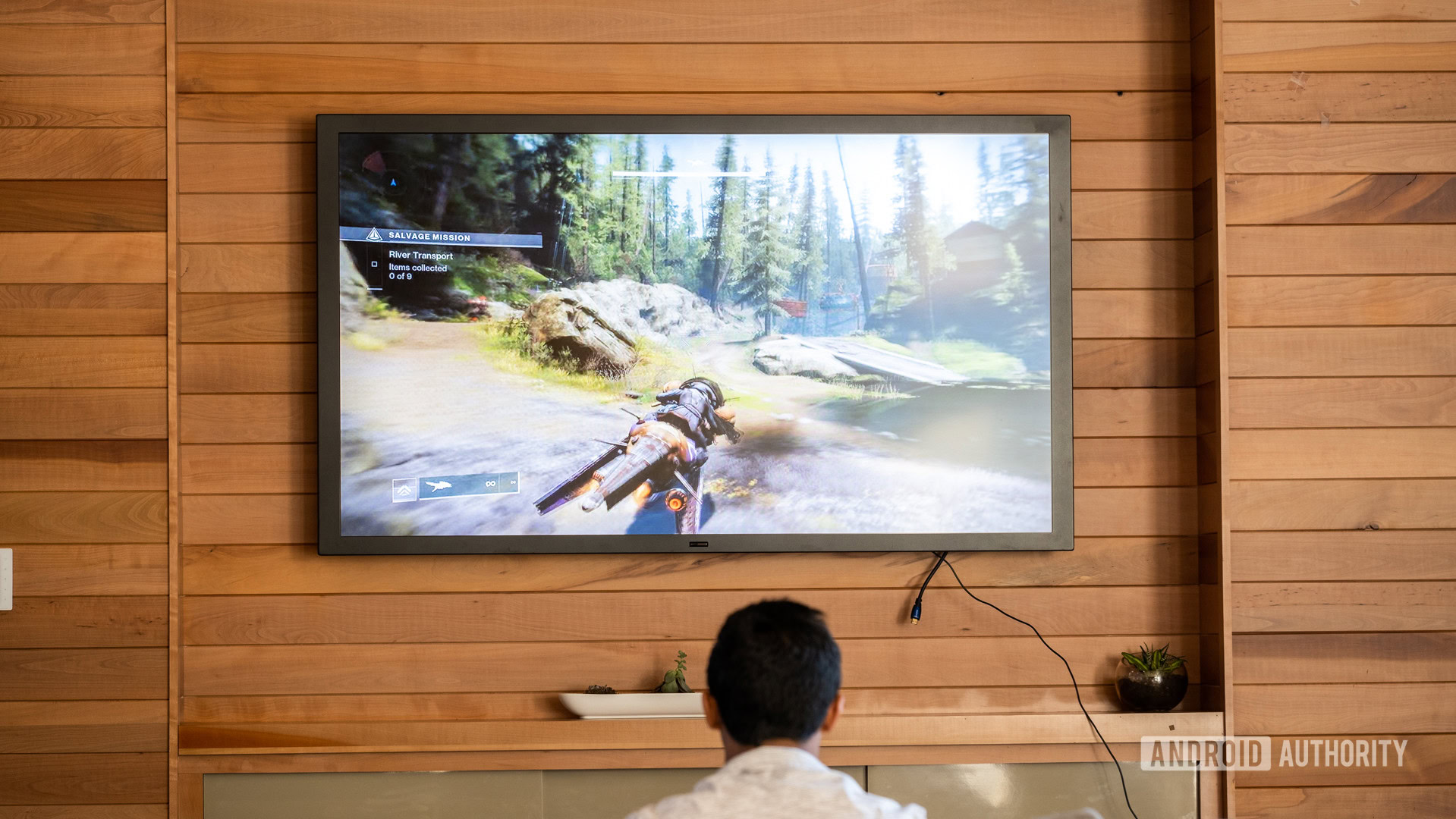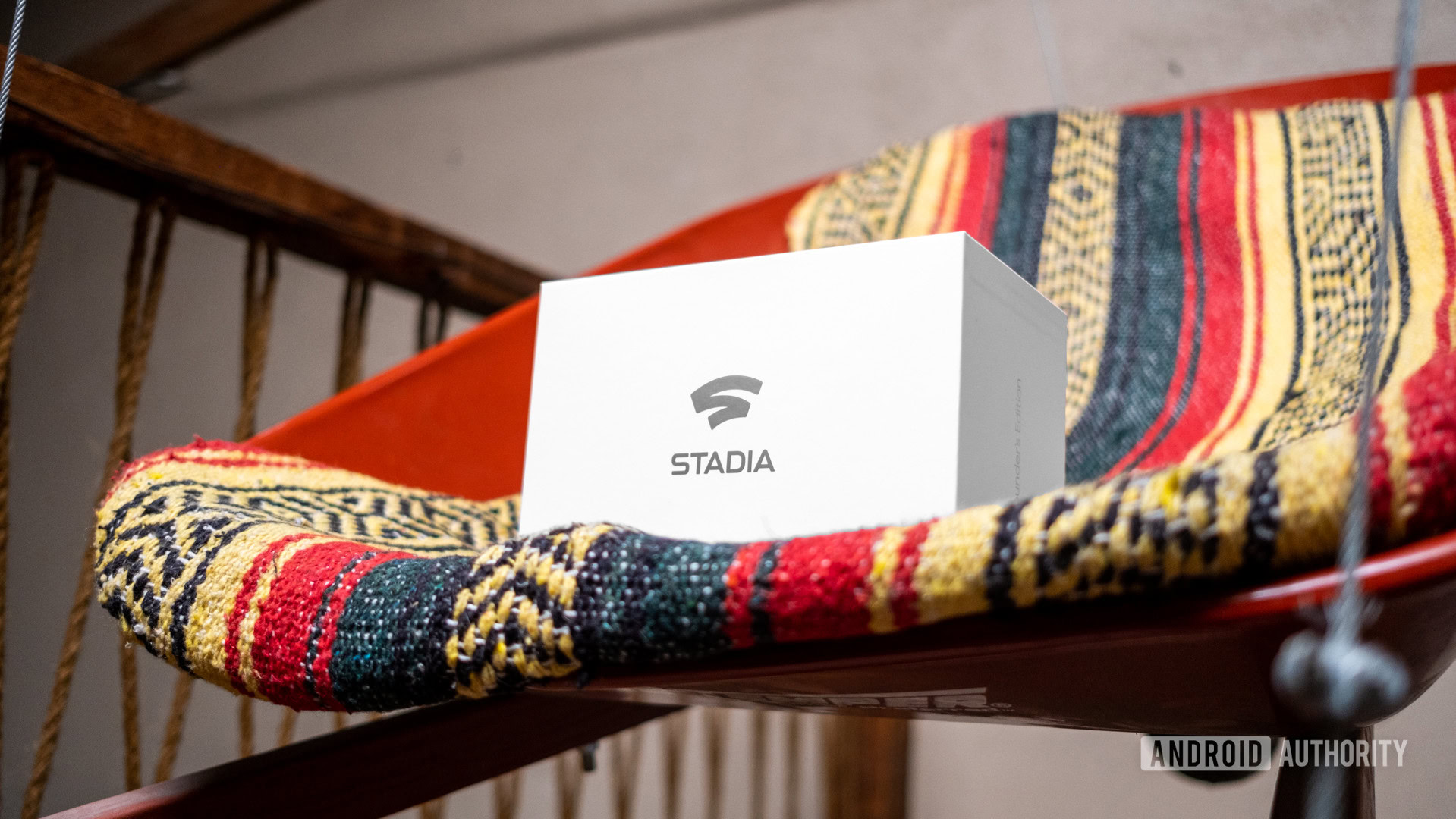Affiliate links on Android Authority may earn us a commission. Learn more.
The big problem with Google Stadia is the issue you can't see
November 21, 2019
Google Stadia officially launched on Tuesday and it’s been a hot topic all week, leaving people divided about the potential of the cloud-based game streaming service. Some say it’s the future of gaming while others are predicting a premature death, but no one really knows how the platform will grow over the next few years.
The most divisive aspects of the service are undoubtedly Stadia’s library of games and latency on weaker connections. With 22 launch titles, Stadia came out swinging with more playable games than most traditional console launches, but many of the games are fairly old. And while we didn’t have particular issues where latency is concerned, many reviews did.
While both of these issues are clearly damning, there’s a big problem you need to dig a little deeper to see. Google Stadia uses a lot of data.
Data caps be damned

At my home in Brooklyn, I have pretty great internet speeds. Weird flex, I know. At any given time my download speeds hover at about 800Mbps (100 megabytes) per second. This means Stadia can stream games at 4k 60fps.
When I looked at Stadia’s data usage through my Google Home app, it showed the platform pulling about 56Mbps per second. That’s about 7 MB/s.
For me, this isn’t a huge problem. In New York, my ISP Spectrum isn’t currently allowed to impose data caps on its customers. But five out of ten internet providers in the United States do have data caps. And that’s a huge problem for Stadia.
When I lived in San Francisco, I had Comcast internet. The company calls its internet plan “Unlimited,” but really, what you pay for is capped at 1,000GB per month. You can go over that, but you’ll be paying $10 for every 50GB over the limit.
Stadia used almost 25GB in an hour.
Assuming you’re playing Stadia at 4K 60fps like me, you’d be paying $5 per hour to play. 7MB/s translates to about 25GB per hour. Multiply that by two, and you’re tossing another tenner over to Comcast.
You could make the argument that you need to hit that 1,000GB limit before you pay extra, but at 25GB per hour, it’s possible you’d hit that pretty quickly. That also doesn’t account for everything else you and others in your household are doing on the internet.
I should note that the problem of data caps is very US-centric. Many of the countries Stadia is launching in don’t have data caps at all. But that doesn’t make my next point any less important.
Bandwidth is vital

The other problem with pulling this much data to Stadia is bandwidth. In a recent report by Ookla, the average download speed in the United States is 35.88Mbps per second. Google recommends 35Mbps down to play Stadia at 4K 60fps. If your internet was exactly the national average, that leaves you effectively no data to use for the rest of your house.
Bandwidth can be thought of like a pipe. The bigger the pipe, the more data can flow through to your devices. If one single spout is taking all the data from your pipe, all your other devices will be left dry.
Most people in the United States live with at least one other person. A 2019 census measured an average of 2.5 people per household. If one person is using all the bandwidth, the other 1.5 people in their home will be left with little to no data for their devices.
It’s getting better

In cities with fiber internet, data isn’t much of a problem. If you’re able to pull down at least 100Mbps and you don’t have a data cap, you should be fine. A 2018 poll from CenturyLink stated that about 25% of the United States has access to fiber internet now, and that number is growing.
Be wary of the real costs before you commit to cloud gaming.
But currently, I’m left thinking that Google should be a little more forward with the data usage of Stadia and the problems it might impose. It clearly knows how much the service can use, which is probably why it doesn’t allow you to play on mobile data.
Read next: Google Stadia lagging, disconnecting, or not working? Here’s how to fix it
There are so many advantages of game streaming, it’s no wonder Stadia is such a compelling service. Just be wary of the real costs before you fully commit to the cloud.
Thank you for being part of our community. Read our Comment Policy before posting.